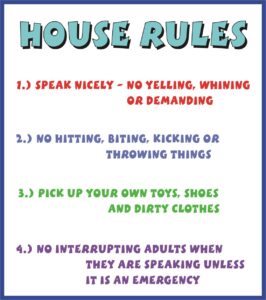Parents of Children with ADHD

Parents of children with ADHD are said to experience more stress related to parenting than parents of children without this disorder. In general, having children (especially multiple little ones) can be challenging for parents trying to work, keep the household together and find time for themselves.
Parents of children with ADHD face an extra challenge of parenting children who are likely to act out in school, at home and not listen to rules or directions. For these children with ADHD, many times, the acting out and not listening is not due to a desire to be “bad” or to be defiant. However, their ADHD symptoms make them feel restless, impulsive and exhibit a greater need to obtain gratification as soon as possible.
ADHD can affect the entire family system as children with ADHD tend to be disorganized and messy. It is common for a child with ADHD to not clean up after themselves and to act up in front of company. It can also be hard for siblings of children with ADHD who may feel they are always helping out and never receiving the attention they need.
There are many tips and techniques out there that parents use to help them raise their children who have ADHD. With the right tools and support, you could help control your child’s’ symptoms and create a calming and peaceful environment.
Parenting Tips
1. Rule system- Organization and clearly defined rules are key for children with ADHD. Writing down a list of rules to follow can be extremely helpful for a young child. The rules can be: clean up my toys after playing, throw my garbage away after eating, use a quiet voice in the house etc. Some families also utilize a point system where with each rule followed, a child can earn a token or a point. A certain amount of points allows the child to earn a reward such as playing a favorite game or earning a snack. write them down, points and tokens
2. Positive Reinforcement: Children with ADHD are not always misbehaving (as with any children) and it is important to praise positive behavior. As a parent with a million and one responsibilities, it can be hard to find that second to complement your child for not screaming loudly in the house.
However, it can hurt a child’s self-esteem to be punished for acting out when he or she is struggling with impulses that are hard to control. Instead of focusing on always being there for the spilling the paint and leaving the door open moments, be there to paise the moments your child is listening.
3. Consistent routines: Children with ADHD have difficulties with executive functioning meaning school work and completing assignments on time will be more challenging.
Create a routine where every day after school for a certain amount of time it is homework time. Soon, this routine of getting home from school and completing homework in a specific spot will become a natural transition.
Bedtime can also be difficult for any child and even more so with children with ADHD who are constantly fidgeting and running around. Setting a routine of the bathroom, story time and in bed, every night can help with this as well.
4. Spending time outside: Studies have shown that when children with ADHD spend time in nature, their symptoms tend to be less severe. Being outside, in the fresh open air can help with ADHD symptoms such as hyperactivity.
When the weather is nice, instead of having your child play inside on the i-pad, try to promote going for walks, playing in the park or bike riding.
5. Parents take care of yourselves: At the end of the day, the most important thing you can do to help your child with ADHD is to help yourself.
Raising a child with ADHD can be extremely stressful and parents need to take time to exercise, sleep and relax. Some parents attend support groups where they speak with other parents going through the same challenges.
When you are feeling better and have more energy, you are better able to implement the above strategies and create a peaceful environment for a child with ADHD.
Take it easy 🙂
Children with ADHD are also the most creative, sensitive and fun loving children. Children with ADHD learn differently and also require more structure and organization than children without ADHD. Understanding how these children think and relate to the world can help foster positive parent-child relationships.



